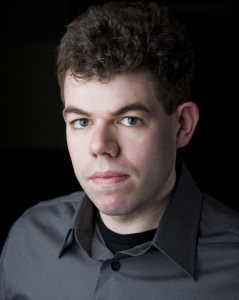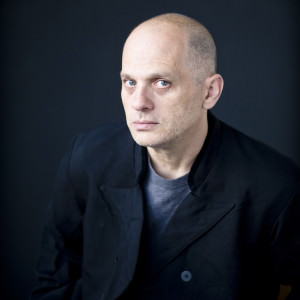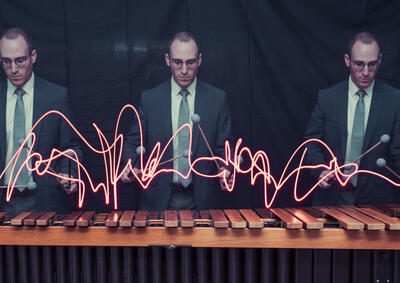Michael Compitello on playing David Lang
This is the first of three guest posts in a series by Michael Compitello '11MMA, a member of the Yale Percussion Group
 My name is Michael Compitello, and I’m a percussion student at the Yale School of Music, and a member of the Yale Percussion Group. On June 22nd, we’re playing a concert at Galapagos Art Space in Dumbo, Brooklyn, that features David Lang’s percussion quartet the so-called laws of nature. Because we’re so excited about this concert, I thought I could offer some thoughts as an introduction to us and the piece, and what this music is like to prepare, rehearse, and perform.
My name is Michael Compitello, and I’m a percussion student at the Yale School of Music, and a member of the Yale Percussion Group. On June 22nd, we’re playing a concert at Galapagos Art Space in Dumbo, Brooklyn, that features David Lang’s percussion quartet the so-called laws of nature. Because we’re so excited about this concert, I thought I could offer some thoughts as an introduction to us and the piece, and what this music is like to prepare, rehearse, and perform.
I’ve loved David Lang’s music from the first time I heard it. As a high-schooler aggressively inhaling any music I could find, David’s “Cheating, Lying Stealing” made me hit the severely underutilized “repeat” button on my Discman. To someone with little experience in contemporary music beyond The Rite of Spring, something about the sound of David’s language felt relevant to me, while with repeated listening the way in which his music created form struck me as aggressively interesting. From that point on, I launched the most sophisticated musical investigation I could muster. Discovering what David, Michael Gordon, and Julia Wolfe had done with Bang on a Can was a step towards what has become my obsession with all kinds of contemporary music, and I consumed willingly and indiscriminately. Since then, I’ve been lucky to have the chance to play a lot of great music and explore many different cultures of contemporary music in Europe and the US, but I’ll never forget the impact that just one piece had on me.
Because of the pivotal role his music played in my self-education, I have always jumped at the chance to play any piece of David’s. The opportunity to work with him on the so-called laws of nature, which is not only an amazing piece, but an amazing piece written for percussion instruments, has been insightful and inspiring.

The so-called laws of nature was written for So Percussion in 2001. While much of David’s music relies patterns as a way of generating musical material, the point of departure for the so-called laws is David’s exploration of what and how these musical patterns actually signify. Inspired by Wittgenstein’s remark that “at the basis of the whole modern view of the world lies the illusion that the so-called laws of nature are the explanation of natural phenomena,” David questions if the scientific method actually explains how the universe works, or if it merely describes the by-products of some greater inspiration. Do the patterns that scientists catalogue in the natural world “themselves generate a certain structure, creating the context and the meaning and the form,” or are they simply “the incidental byproducts of other, deeper, more mysterious processes”? This question, David posits, can be re-framed musically: do musical patterns explain compositions, or do they merely describe them? Is “the music” made out of large and small patterns of pitch, rhythm, and harmony, or are patterns simply the byproducts of inexplicable (capital I) Inspiration?
The so-called laws of nature is David’s musical investigation of this question. Throughout the piece, our parts are almost identical: our musical patterns are the same, and we play often in rhythmic if not pitch unison. In each movement, however, David changes a parameter—each of which nudges us away from unison in a subtly different way—and the piece unfolds as the exploration of the questions created by these slightly out of phase procedures.
The first part of the so-called laws begins with an extended section in rhythmic and gestural unison. Because each of our lowest four wooden slats is tuned differently, however, there is a dissonance between what is seen and heard: the quartet appears to be playing identical music, making the same gestures, but each the four instruments sound different. In the second part, the four players play exactly the same music, displaced in time. The third part is complete unison: the inherent unpredictability of the instruments (teacups, flowerpots, guiros) create imperfections that set each player’s part into relief. While the so-called laws of nature was intended for four performers, David suggested that we divvy the 4 parts in each movement among us with each of us playing in two of the three movements, allowing all six of us YPG-ers to participate in the project.
Tomorrow: Compitello discusses getting ready to play the piece





